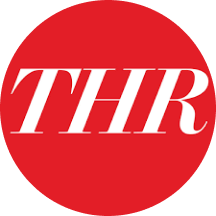John Clarke, Michel H. Devoret and John M. Martinis won the Nobel Prize in Physics on Tuesday for research into quantum mechanical tunneling.
Clarke conducted his research at the University of California, Berkeley; Martinis at the University of California, Santa Barbara; and Devoret at Yale and also at the University of California, Santa Barbara.
The Nobel committee said that the laureates' work provides opportunities to develop “the next generation of quantum technology, including quantum cryptography, quantum computers, and quantum sensors.”
It is the 119th time the prize has been awarded.
Last year, artificial intelligence pioneers John Hopfield and Geoffrey Hinton won the physics prize for helping create the building blocks of machine learning.
Nobel announcements continue with the chemistry prize on Wednesday and literature on Thursday. The Nobel Peace Prize will be announced Friday and the Nobel Memorial Prize in economics on Oct. 13.
The award ceremony will be held Dec. 10, the anniversary of the 1896 death of Alfred Nobel, the wealthy Swedish industrialist and the inventor of dynamite who founded the prizes.
The prizes carry priceless prestige and a cash award of 11 million Swedish kronor (nearly $1.2 million).

 Associated Press US and World News Video
Associated Press US and World News Video
 NBC Bay Area Dixon News
NBC Bay Area Dixon News KUOW Public Radio
KUOW Public Radio GV Wire
GV Wire FOX 5 Atlanta Crime
FOX 5 Atlanta Crime Democrat and Chronicle
Democrat and Chronicle AZ BIG Media Real Estate
AZ BIG Media Real Estate Reuters US Business
Reuters US Business The Hollywood Reporter
The Hollywood Reporter Business of Home
Business of Home CNN Business
CNN Business FACTS.NET Culture
FACTS.NET Culture Timeout New York
Timeout New York Raw Story
Raw Story